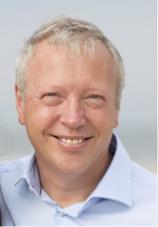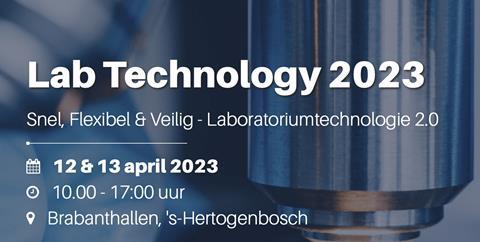The future of plastics: high potential polyesters from biomass and CO2.
Instead of producing renewable versions of molecules that we use today (drop-in) such as bio-based ethylene, propylene and para-xylene (for PET monomer terephthalic acid), we will make use of the structure already present in carbohydrates (and CO2) when developing new monomers. These oxygenates will also be the lower cost products from renewable feedstock. In addition, polycondensates (such as polyesters) are designed for (closed-loop) recycling as these polymers can always be converted back to the monomers (which is not possible for the polyolefins such as PE, PP and PS).
New materials with unique properties, based on sugar and CO2 feedstock such as FDCA (furan dicarboxylic acid), isosorbide, oxalic acid, glycolic acid and lactic acid will be discussed as examples.
Register now for Lab Technology.

About the speaker
Gert-Jan Gruter (1963) has a background in polyolefin catalysis (DSM 1993-2000; now Sabic) and has been Professor of Polymer Catalysis at Eindhoven University of Technology (1999-2006). He joined Avantium in 2000 and as CTO he initiated the YXY technology, which includes FDCA from C6 sugars and 100% bio-based PEF polyester for bottles, fibers and film. In addition, Gruter is involved in the development of the ‘DAWN Biorefinery Technology’, the ‘RAY bio-MEG Technology’ and the ‘Volta Technology’ for the electrochemical reduction of CO2 to polyester monomers such as oxalic acid and glycolic acid. Gruter is inventor on more than 100 PCT patents and author of more than 50 scientific publications and book chapters; he was elected ‘2014 European CTO of the year’. Currently he is part-time professor Industrial Sustainable Chemistry at the University of Amsterdam (UvA). At the UvA he is working on high Tg (glass transition temp) copolyesters for ABS replacement (with LEGO), on biodegradable polymers with fantastic barrier- and mechanical properties (PLGA and PISOX) on PET upcycling and textile (cotton/polyester blend recycling) and on consumer psychology.
















